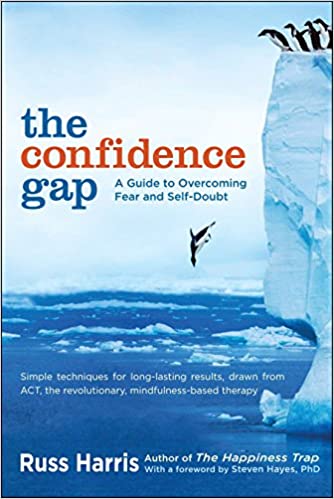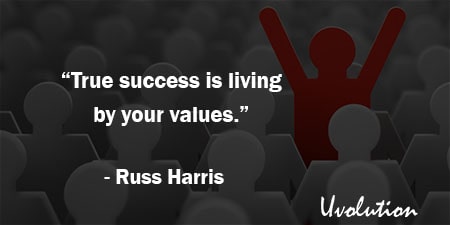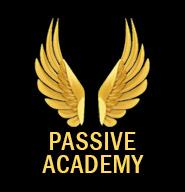The Confidence Gap by Russ Harris Summary
The Book in 1 Sentences
The Confidence Gap: A Guide to Overcoming Fear and Self-Doubt
“Whether you call it ‘lack of confidence,’ ‘fear of failure,’ ‘performance anxiety,’ or ‘self-doubt,’ the chances are it’s cost you dearly in your life. Take a moment to consider: What have you given up? What have you missed out on? What opportunities have you lost because of it?
Over the years, I’ve worked with literally thousands of people who have put their hopes, dreams, and ambitions on hold because they ‘don’t have enough confidence.’ And the sad thing is, this lack of confidence is not due to any fault of their own.
It is certainly not because of stupidity, or laziness, or negative thinking, or a deprived childhood, or a chemical imbalance in the brain. It is simply because they do not know the rules of the confidence game. ...
On your journey, you’ll discover a revolutionary new approach to maximizing human potential: a model of change that is firmly based on cutting-edge research in human psychology.
And you’ll learn to develop a mind-set known as psychological flexibility—a powerful mental state that enables you to respond effectively to fear, anxiety, and self-doubt. You’ll also learn to develop genuine, lasting self-confidence. And you’ll learn to enhance your performance in any area of your life—from sports, business, and creative arts to socializing, parenting, and
sex!” ~ Russ Harris
6 BIG Ideas
1. What is the confidence gap?
2. The 10 rules of the confidence game
The Confidence Gap Book Summary
1. What is the confidence gap?
“Many people are completely lost in something I call ‘the confidence gap.’ It’s that place we
get stuck when fear gets in the way of our dreams and ambitions. You know you’re stuck in the
confidence gap if you believe something like this:
I can’t achieve my goals, perform at my peak, do the things I want to do, or behave like the
person I want to be until I feel more confident.
Does this ring true for you? Many self-help approaches inadvertently encourage you to think this way, but you will soon discover that the more tightly you hold on to this belief, the more it will hold you back from creating the life you want.”
2. The 10 rules of the confidence game
“Below I’ve listed the ten ‘right’ rules of the confidence game. However, before you read through them, I think a warning is in order: rules become dangerous when we follow them rigidly. So please—hold all these rules very lightly! Be flexible with them: bend them, modify them, or drop them as required. They are not the Ten Commandments!”
“TEN RULES FOR WINNING THE GAME OF CONFIDENCE
1. "The actions of confidence come first; the feelings of confidence come later.”
2. “Genuine confidence is not the absence of fear; it is a transformed relationship with fear.”
3. “Negative thoughts are normal. Don’t fight them; defuse them.”
4. “Self-acceptance trumps self-esteem.”
5. “True success is living by your values.”
6. “Hold your values lightly, but pursue them vigorously.”
7. “Don’t obsess about the outcomes; get passionate about the process.”
8. “Don’t fight your fear: allow it, befriend it, and channel it.”
9. “Failure hurts—but if we’re willing to learn, it’s a wonderful teacher.”
10. “The key to peak performance is total engagement in the task.”
Learn more about these rules in the book.
3. Workability
“At this point, I’d like to introduce one of the most important words in this book: workability. Please etch this word deep into your brain, as it underpins everything we do from this point on.
The term workability arises from this simple question: ‘Is what you are doing working to help you create a richer, fuller, more meaningful life?’ If the answer is yes, then what you are doing is workable. If the answer is no, then what you are doing is unworkable.
The concept of workability can help us unhook from our thoughts. If your aim is to empower yourself so you can take effective action and be who you really want to be, but your mind is generating all sorts of reasons why that just can’t happen, then you can ask yourself this question: ‘If I allow this thought to guide my actions, will it help me create the life I want?’
If the answer is no, then you can recognize that the thought is unhelpful and that acting on it would be unworkable. It only takes a few seconds to do this: to pause, check in, notice what your mind is saying, and ask yourself the foregoing question.
Recognizing a thought or belief is unhelpful often helps to reduce its influence over us; it makes us less likely to act on it. However, note that with this approach, we’re not getting into debates about whether the thought is true or false; the question we’re interested in is simply this: ‘If I let this thought dictate my actions, will it help me lead the life I want?’”
4. True success is living by your values
“If we live our lives by this definition of success, we are doomed to stress and misery (punctuated by brief moments of joy when we achieve a goal). So I invite you to consider a radically different definition. True success is living by your values.
This definition makes our lives ever so much easier. Why? Because in any moment, we can act on our values—yes, even if we’ve neglected them for years. Presto, instant success! ...
When living by our values becomes the definition of success, it means we can be successful right now. All we need to do is act on our values.
From this perspective, the mother who gives up her career to act on her values around nurturing and supporting her children is far more successful than the CEO who earns millions but completely neglects his values around being there for his kids.
Albert Einstein put it this way: ‘Try not to become a man of success, but rather try to become a man of value.’ And Helen Keller put it like this: ‘I long to accomplish a great and noble task, but it is my chief duty to accomplish small tasks as if they were great and noble.’
So next time your mind is beating you up for not being successful enough, try saying, ‘Thanks, mind!’ And then ask yourself, ‘What tiny thing can I do right now that’s consistent with my values?’ then do it: instant success!”
5. FEAR holds us back
“What holds us back? What stops us from acting on our values? The answer is FEAR. No, not fear, but FEAR, an acronym that stands for:
F—Fusion
E—Excessive goals
A—Avoidance of discomfort
R—Remoteness from values”
“So a useful question to ask ourselves whenever a goal seems to exceed our resources is: ‘What’s the smallest, simplest, easiest little step I could take in the next twenty-four hours that would take me a tiny bit closer to achieving it?’”
6. Two choices!
“Suppose I could give you a choice about how to live your life. There are two options:
Option 1: for the rest of your life, you only take action to do the things that are really important to you if you are in the mood, psyched up, and feeling good. In other words, you spend the rest of your days on this planet at the mercy of your emotions.
If you’re in the mood or you feel good, then you do the things that make your life work. But if your mood drops or you don’t feel good, then you give up doing the things that truly matter, and put your life on hold until such time as you feel good, positive, inspired again.
Option 2: for the rest of your life you take action to do the things that are really important to you, whether you are in the mood or not. Whether you feel good or bad, energetic or fearful, inspired or uninspired, you continue to take action; you keep doing what truly matters to you.
Instead of going through life at the mercy of your emotions, you can behave like the person you want to be and do the things you want to do, even if you’re tired or anxious, or you don’t feel like it.
Which do you choose?”
That was my QUICK overview of some of the big ideas of The Confidence Gap by Russ Harris. If you’re interested, get your copy. There is a HUGE amount of life-changing ideas in this book, and we’ve only touched on a tiny bit of it.
Buy The Book: The Confidence Gap by Russ Harris

GET Blinkist 7 Days FREE Trial
3000+ Book Summaries
(Audio and Text)








